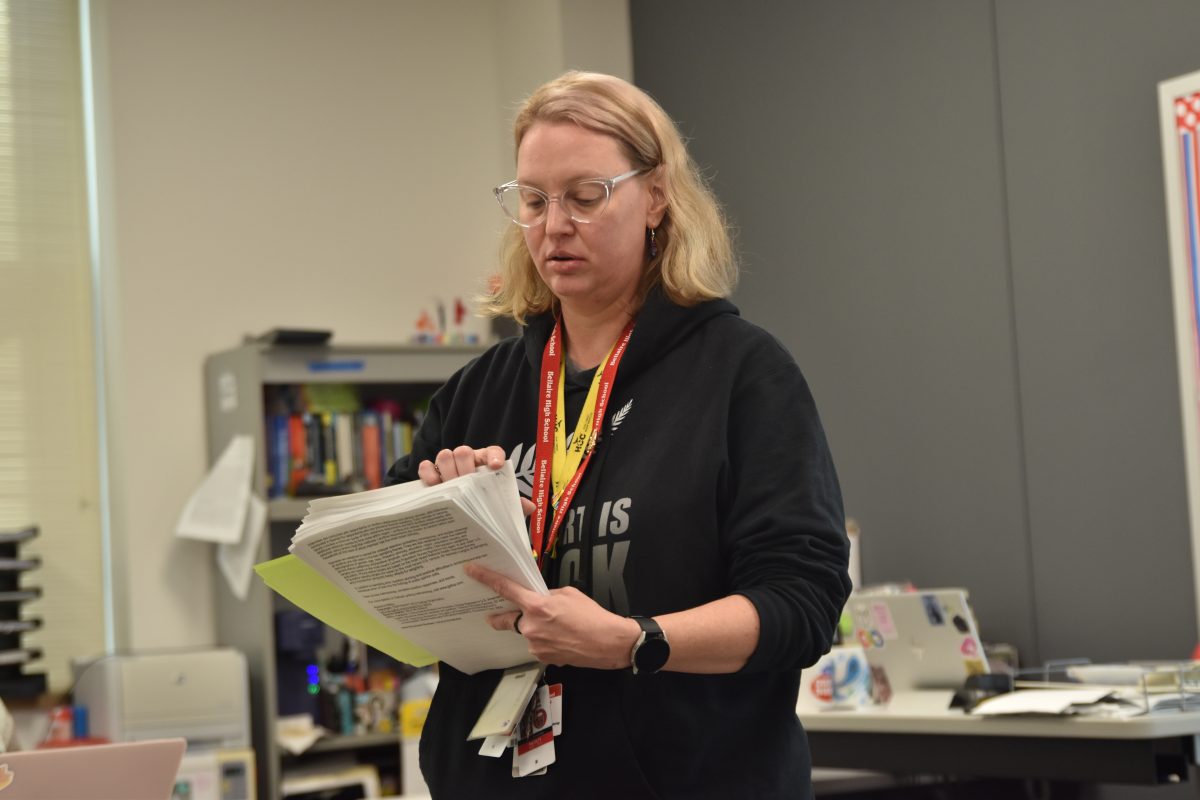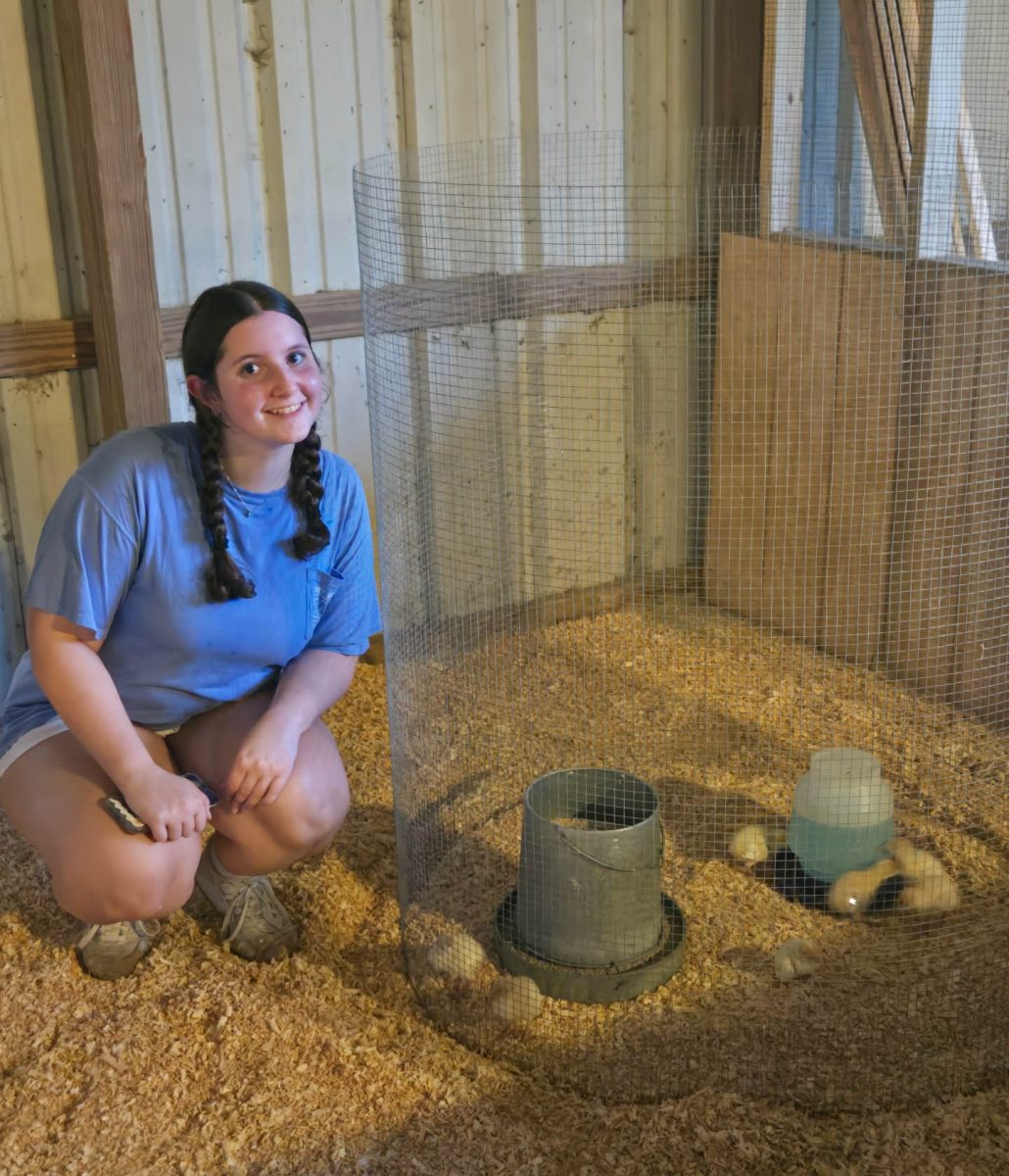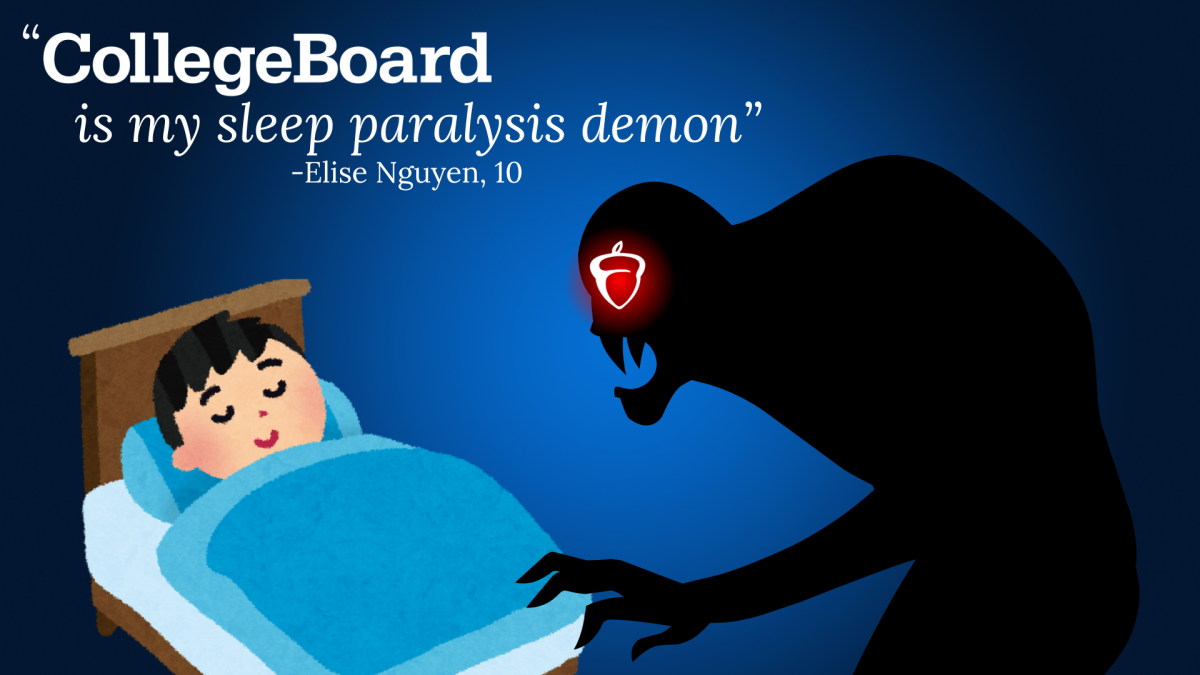During class, the sound of a coffee grinder reverberates, signaling a familiar ritual in dual credit and English IV teacher Sarah Humphrey’s classroom. As the aroma of freshly brewed coffee wafts through the air, students momentarily glance up from their classwork, enticed by the scent.
“I’ve been on Adderall and Ritalin and they work fine, but caffeine works just fine for me too,” Humphrey said. “I drink more coffee than any human on the planet.”
Humphrey received her diagnosis of attention-deficit/hyperactivity disorder (ADHD or ADD), a condition that impacts brain activity and attention, during her college years. However, her journey with this condition started long before the formal diagnosis.
“My mom recognized that I probably had ADD in middle and high school,” Humphrey said. “I wasn’t hyperactive, but I struggled to hang on to a thought or finish a sentence without interruption.”
However, her grades weren’t affected significantly, so it wasn’t until college that she sought medical help.
“I had an easier time concentrating [or] I would remember things passively,” said Humphrey. “So even if I wasn’t paying attention in class, if I heard it or if I was paying attention when I was reading it, I would remember it for the test. My grades weren’t bad, so it wasn’t really an issue.”
She realized her struggle focusing on subjects such as math and foreign languages was the catalyst in searching for professional help.
“When I’m not interested in something, trying to focus is so incredibly difficult for me,” said Humphrey. “So I sought medical help to try and be able to focus, otherwise certain classes in college like college algebra and foreign language were not quite so easy for me, whereas English and history were super easy.”
Her candid acknowledgment of personal challenges, such as occasionally cutting people off mid-conversation, mirrors the traits of transparency she brings to the classroom. Humphrey’s teaching approach is marked by her openness about her ADD. She acknowledges her students, explaining her tendency to be easily distracted or interrupt conversations.
“On the first day, I apologize in advance because I will interrupt [students],” Humphrey said. “I will never mean to hurt [their] feelings. I know that it’s rude. So I find it easiest just to apologize in advance and say, ‘Hey, this is what I have. I’m no different than you guys.’”
This openness becomes a cornerstone of Humphrey’s classroom. Her honesty serves as a bridge to how students perceive her. They witness a teacher who, much like them, grapples with the nuances of focus and storytelling.
Senior and dual credit English IV student Taylor Servellon appreciates Humphrey’s efforts to cultivate a welcoming space.
“[Humphrey] teaches in a way that engages us with topics that peak our interests,” Servellon said. “She also treats each and every single one of her students with respect…encouraging students to speak their minds without feeling judged.”
Senior dual credit English IV student feels the most comfortable in Humphrey’s class.
“I’ve noticed that she overall teaches as a class versus just groups, but she also makes sure to keep the material fun and interesting,” Colburn said. “She always keeps the activities in class lighthearted and enjoyable.”

Venturing beyond the classroom, even during her travels to Sydney, Australia, Humphrey’s ADHD persists. She reflects on a phone conversation during her time abroad.
“When I was in Sydney, a friend of mine said he didn’t realize just how bad my ADHD was until I was on the phone with him,” Humphrey said. “Everything [made me distracted], and I would keep saying ‘Oh look a squirrel’ in the middle of sentences.”
Humphrey occasionally faces challenges, not only in staying strictly on topic but also in maintaining focus and meeting deadlines without relying on last-minute efforts.
While she never misses a deadline, the last-minute rush remains a source of constant stress.
“I can set all the deadlines for myself in the world but sometimes it still doesn’t help,” Humphrey said.
Humphrey explains the varying dynamics of her attention span.
“I can hyper focus on books a lot of times,” she said, underlining her deep engagement with subjects that capture her interest, such as English. However, she contrasts this by expressing the challenges she encounters with other topics. “Things like TV shows, I lose interest so fast. I can’t sit through a whole episode because of the commercials.”
During her days as an AP Literature teacher in Atlanta, Georgia, Humphrey added a playful twist to her teaching routine: she let her students pen letters to the incoming class.
“It would be like, ‘How to survive Humphrey’s AP Lit class,’ and one was like, ‘You can totally get her off task if you bring up these topics,’” Humphrey said. “‘Another one said, ‘You can manipulate her behavior with hot fries.’ [If] you want to get me off task, bring me hot fries.”
Her coping mechanisms to deal with ADD involve meticulous planning and setting personal deadlines. Despite struggles with procrastination, she advises students facing similar challenges to create lists and prioritize self-care. Adequate rest and attending to personal needs play a crucial role in managing ADD/ADHD symptoms.
“I wish that I could say it gets better when you get older but it doesn’t,” Humphrey said. “It [goes] in waves. As you get older, you just have more coping mechanisms to deal with it.”












Haset • Dec 14, 2023 at 6:32 pm
wow love this